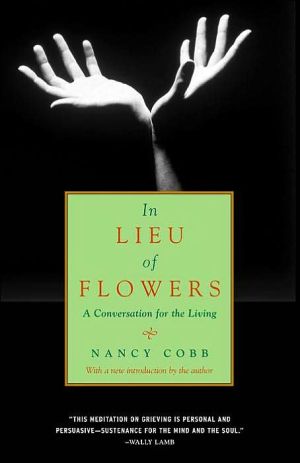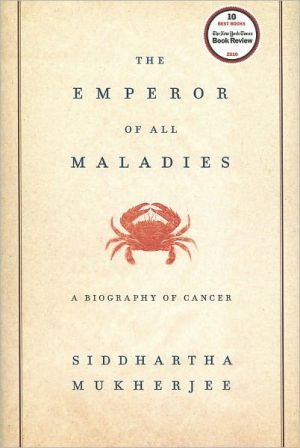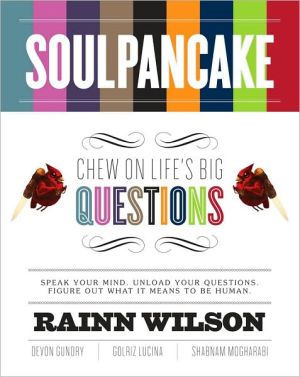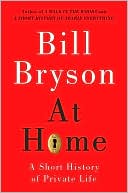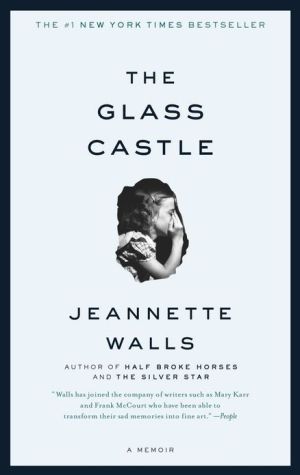In Lieu of Flowers: A Conversation for the Living
“Grieving is as natural as breathing, for if we have lived and loved, surely we will grieve. . . .”\ Nancy Cobb meets death in the most vital of places–in the lives of everyday people–and in doing so has found a way to infuse this darkest subject with light. Her candor and refreshing perspective make the deaths of those she has loved–and death itself–a subject to explore rather than to avoid.\ Cobb’s personal experiences become a point of departure for what amounts to a longer conversation...
Search in google:
“Grieving is as natural as breathing, for if we have lived and loved, surely we will grieve. . . .”Nancy Cobb meets death in the most vital of places–in the lives of everyday people–and in doing so has found a way to infuse this darkest subject with light. Her candor and refreshing perspective make the deaths of those she has loved–and death itself–a subject to explore rather than to avoid. Cobb’s personal experiences become a point of departure for what amounts to a longer conversation about loss. In telling stories about encounters with grief, Cobb opens us up to our own experiences, and she encourages us to accept and honor the “divine intersections” where the living meet the dying. Wall Street Journal - Wendy Bounds In In Lieu of Flowers, each story Ms. Cobb tells is rendered with grace and simple honesty from the theologian whose 24-year-old son is killed in a car crash to her friend Elaine, who dies from breast cancer at age 53. In Lieu of Flowers will not satisfy those looking for a mawkish 10-step program for grieving. It is not a how-to-cope tome but rather a candid collection of tales that lets readers know they aren't alone.
Chapter Eleven: Children\ Curiosity underscores every stage of life. Without it we would be a pretty dull bunch. Yet when it comes to death and grief, even the most curious among us clam up.\ Carl Jung believed that "the negation of life's fulfillment is synonymous with the refusal to accept its ending. Not wanting to die," he wrote, "is identical with not wanting to live." In The Healing Heart, Norman Cousins concludes that "death is not the enemy; living in constant fear of it is." How can the rest of us become more accepting of their wise conclusions?\ Perhaps, quite simply, by listening to our children.\ Recently, I met a woman whose husband had died several years ago, just days after his fortieth birthday. Betsy said she and her husband had been "soul mates" from the moment they met until his death ten years later. They could communicate almost, she said, "without talking." And so it did not seem at all strange for her, as he lay dying of a brain tumor in the bedroom of their home, to curl up beside him "in spoon position," as was their habit, and ask him to give her a sign.\ "You mean after I am dead?" he asked, his voice, a whisper.\ "Yes," she said, "so I know that you're safe."\ "But what if I can't? What if I'm not able to?"\ "You'll be able to," she said. "I just have to believe you will."\ He died a week later. After his body had been taken away, Betsy's two-year-old son came into their bedroom with her father, who was quite close to the little boy. This was a child who, Betsy said, "was an observer, a child who, save a word here and there, barely talked at all."\ Suddenly, Betsy remembered, her son "stretched his arms up toward the section of the ceiling over the bed, and said, 'Daddy, Daddy, hold me, hold me.' It was incredible. He had never, ever put words together like that before or spoken so clearly. My father, a no-nonsense surgeon, was speechless. It was obvious to both of us that my husband was present in some form and my son could see him, even if we couldn't."\ Betsy described waking up in the middle of the night two weeks later and feeling "absolutely" that her husband was there, first as a "kind of energy" surging through the the room, and then in a calmer form, tucked in beside her in the very configuration they had always slept in.\ "He was there by my side for -- I'm not sure how long, really -- but I experienced an amazing sense of peace and well-being. It was the sign I had hoped for."\ Betsy has told very few people about these experiences; like the bank teller, she fears they might think she is crazy, a refrain that I have heard too many times to count. Yet I believe if we grant ourselves a grace period to observe and to listen, we might learn a few things, one being that at our most basic, we too are sensate creatures.\ Small children remind us of this every day. They help us to strip away the pretense, to see and respond in a more open way, as Betsy's son did, without a smidgen of self-consciousness.\ Elisabeth Kübler-Ross has said that dying children often express their feelings more naturally than adults. Terminally ill children often speak of their dreams and visions, according to pediatric oncologist Diane Komp, the author of A Child Shall Lead Them and A Window to Heaven. She writes, "For adults, the so called 'near-death experience' is often spiritually revolutionary, a type of conversion experience that puts them on a new road. For children, however, the experience is more spiritually evolutionary, progress on an already familiar pathway."\ My friend Cathy, a teacher and a painter, is one of those rare grown-ups who both understands and speaks the language of children. Last year when her husband, George, who had just turned seventy, died suddenly, their large Greek family, along with their extended family of friends and neighbors, rallied around.\ As people waited in a long line that stretched out of the funeral home into the December night, Cathy took time to greet every person, frequently breaking into tears as she listened to their memories of George. After watching this from a corner of the room, Cathy's six-year-old granddaughter, Alexandra, approached her tentatively.\ "Yaya," she asked, "why do you cry every time a new person talks to you?"\ "Because I am sad about Papou," Cathy said, "but when I look into your face, it makes me happy again." After that, for the rest of the evening, when Cathy began to cry, her granddaughter would sidle up, slip one finger into her Yaya's hand and present a beaming countenance front and center.\ George and Cathy -- Papou and Yaya to their grandchildren -- had known each other since childhood. George, who had been a devout member of the Greek Orthodox faith until the day he died, had told Cathy he wanted a traditional service, one that would require, among other things, an open casket. Knowing that this might frighten her grandchildren, Cathy walked them through the details the morning of George's funeral. Little Georgie, her four-year-old grandson, listened soberly as Cathy explained that they would be seeing Papou the next day but that even though his body was there, Papou had died and had gone to heaven with the angels.\ Sitting cross-legged on the floor, fiddling with his shoelaces, Georgie tried to make sense of what his Yaya had just told him. Suddenly he brightened, looked up at Cathy, and said, "Oh, I get it, Yaya . . . you mean Papou is there . . . he's just not in."\ Cathy remembers an incident that occurred two months before George's death that she thinks of now as the children's "preparation." On a warm autumn day she and Alexandra and Georgie, who visited their grandparents at least twice a week, were painting self-portraits at the kitchen table when a wren crashed into the plate-glass door behind them and fell to the ground with a broken neck. The children were so distraught that Cathy suggested they create a special ritual and bury the little bird in the backyard. Georgie and Alex went off to retrieve a shoe box from the back of their Yaya's closet and then proceeded to paint it with the bright acrylic colors they had been using. After setting the newly painted box and lid to dry in the sun on the patio, the children searched for "favorite birdie things." They collected enough grass and acorns and yellow mums to feather the deceased's final nesting place. After digging a hole with Papou's shovel, each child gave a blessing.\ "I want to hug you and I'll always miss you, birdie," said Georgie.\ "Birdie, I wish you could stay alive. We made you a nice home while you are dead. I hope you love it," said Alex.\ Then they solemnly placed the box in the ground and began to cover it with handfuls of earth.\ "Wait a minute!" cried Alexandra, "what about the birdie's parents? They will be looking for him."\ "Why don't you write them a letter and tell them what happened," Cathy suggested.\ After much deliberation, Georgie and Alexandra came up with the following message and tacked it to the maple tree that shaded the small grave with its spindly twig cross:Your birdie is dead, but we put it in a nice box and buried it.\ Don't worry. He's in heaven with our dogs, Nikki and Kato.\ Love, Alex and Georgie\ Nothing more to add here save the words of Henri Frederic Amiel:Blessed be childhood, which brings down something of heaven into the midst of our rough earthliness.\ From the Hardcover edition.
Introduction: Opening the Conversationxiii1Closing the Gap32Finding Your Tribe173Unexpected Connections294In Memory435Death-Defying Humor556Telling the Truth617Dreaming758The Saints and the Poets839Unnatural Losses9310Hannah Lee10311Children11312Macaroni and Butterflies12113Creature Comforts13714Radical Departures147Acknowledgments153
\ Wendy BoundsIn In Lieu of Flowers, each story Ms. Cobb tells is rendered with grace and simple honesty from the theologian whose 24-year-old son is killed in a car crash to her friend Elaine, who dies from breast cancer at age 53. In Lieu of Flowers will not satisfy those looking for a mawkish 10-step program for grieving. It is not a how-to-cope tome but rather a candid collection of tales that lets readers know they aren't alone. \ — Wall Street Journal\ \ \ \ \ Publishers Weekly - Publisher's Weekly\ In this brief book--part memoir, part meditation--Cobb (How They Met) pushes us to address death "as lovingly" as we deal with birth or as analytically as we approach cooking. The author herself has seen both her parents die, yet she has found exultation within grief, in the form of "ordinary miracles" at the hospice where her mother died, such as when her mother whispered her last words, "I am so happy." Cobb suggests that "the essence of a person" perseveres in infirmity; indeed, her dying mother remained her crusty self despite her Alzheimer's. "Grief activates empathy," Cobb claims, yet she recognizes that, while it's important to listen, others' stories of losing loved ones serve as suggestions rather than prescriptions for each person's unique experience. Maintaining that "grief needs a place to go" over time, Cobb recommends taking the initiative with someone suffering a loss, doing something useful rather than giving advice. Some of Cobb's stories about her life and her friends range afield, and a few observations seem obvious, such as that some friends will fall away when illness hits. Cobb also has some New-Age tendencies ("I believe the dead linger," she declares; later, she ends a chapter with several anecdotes about well-loved birds appearing after a death). Still, this touching book for the most part avoids sentimentality and, despite its meandering, holds some worthy wisdom. (Apr.) Copyright 2000 Cahners Business Information.\|\ \ \ Library JournalCobb, a former public radio host and actress, has lost her father to suicide, her mother to Alzheimer's, and a close friend to cancer. In her quest to understand death and dying, she shares her encounters and observations with others who have dealt with the death of a loved one. A tribute to those Cobb has loved and lost, this book is not entirely successful in taking the message to a broader audience. On one hand, some carefully crafted chapters, such as the one about her mother's last days in hospice, elicit a deep-felt response--the poignant dialog and insight transcend personal tragedy to create something universally touching. Other chapters, however, offer disjointed vignettes that never seem to settle on a theme. The author aptly describes herself as having a "penchant for rambling." Overall, this is an interesting and somewhat entertaining read, but it does not break any new ground. Cynthia Pearson and Margaret L. Stubbs's Parting Company: Understanding the Loss of a Loved One (LJ 8/99) provides a much richer source of information. Recommended only for public libraries with large budgets. [Previewed in Prepub Alert, LJ 12/99.]--Annette Haines, Central Michigan Univ. Libs., Mount Pleasant Copyright 2000 Cahners Business Information.\\\ \
